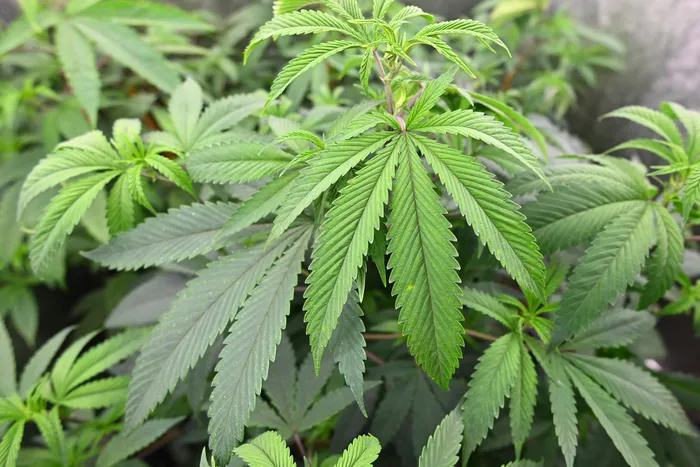
Cannabis cultivation The Roundtable dialogue highlights the ongoing challenges faced by Rastafari communities in South Africa, including systemic discrimination, unlawful arrests.
Image: Frank Hoermann/Sven Simon/dpa Picture-Alliance via AFP
The South African Human Rights Commission’s recent roundtable dialogue with the Rastafari communities in South Africa shed light on their challenges, which echoed sentiments of injustice and discrimination that continue to resonate through their collective experience.
The discussion provided a pivotal platform for the voice of the little-heard community representatives, who detailed a history of systemic discrimination against Rastafari individuals.
Among the critical issues raised were the unlawful cannabis-related arrests, school expulsions over cultural hairstyles, and the pervasive exclusion from the burgeoning cannabis industry.
The root of these grievances lies in the significant trauma felt by Rastafari people.
They claim that, despite South Africa’s democratic framework, their faith was deeply intertwined with African heritage and the historical use of cannabis for health and spiritual purposes remains unacknowledged.
Representatives from the Rastafari Human Rights Institute, which included advocate Prince Gareth, expressed frustration at being abandoned by the country's judiciary, executive, and legislative branches. Gareth lamented the “fleeting illusion” of cannabis freedom that has yet to be realised.
He recounted the community's plea to the SAHRC for urgent assistance in 2024, following a wave of unlawful arrests, despite a Constitutional Court judgement seven years prior, which should have protected their rights.
“The police reported at the roundtable that close to 80% of arrests do not result in court cases, yet police continue to arrest citizens for possession in blatant disregard of the law,” Gareth stated.
Alarmingly, the request for the National Commissioner of Police to address the SAHRC went unheeded, highlighting a significant lack of accountability.
A landmark move occurred with President Cyril Ramaphosa’s signing of the Cannabis for Private Purposes Act 7 of 2024, which legalised private possession and use of cannabis by adults.
However, the absence of regulations has left Rastafari individuals vulnerable to harassment and wrongful arrests, prompting the SAHRC to observe a troubling rise in complaints about law enforcement targeting Rastafari communities.
Elder Reuben, a significant figure among Rastafari, articulated the deep spiritual connection to cannabis within their culture, and referenced its biblical significance as a sacred substance bestowed by God.
It underscored how central cannabis was to their identity, moving beyond mere legislation into the realm of faith and cultural practice.
Despite the legal advancements, widespread challenges persisted within Rastafari communities.
Reports of unlawful searches, public profiling, and discrimination in educational environments, where children were coerced into conform, by cutting their dreadlocks, demonstrated the ongoing systemic exclusion, leaving many feeling like “non-persons” in a nation that professes equality.
Thau Thau Haramanuba, National Deputy Chairperson of the Rastafari Nation Council, highlighted the historical context of mistreatment rooted in apartheid.
He ardently called for a shift from dialogue to concrete action, demanding systemic changes to honour and enhance the culture and traditions of the Rastafari, an integral minority group within South Africa.
The meeting also exposed trends of discrimination that extended beyond cannabis, which revealed Rastafari individuals facing undue workplace drug tests and being marginalised in educational settings, unless they abandon their cultural norms.
Rastafari marriages, and their dietary requirements were also ignored in public facilities.
Disappointed by the performance of the SAHRC, Gareth criticised the delayed publication of their report, which came eight months post-discussion.
He bemoaned the unfulfilled promise of urgent litigation for Rastafari rights and expressed disillusionment with the Roundtable’s outcome, stating, “It ended up just being another talk shop with no real resolutions or relief for our community members.”
He further stressed the economic potential of cannabis, noting that a lack of institutional will continued to stifle progress and condemn many to poverty.
DAILY NEWS